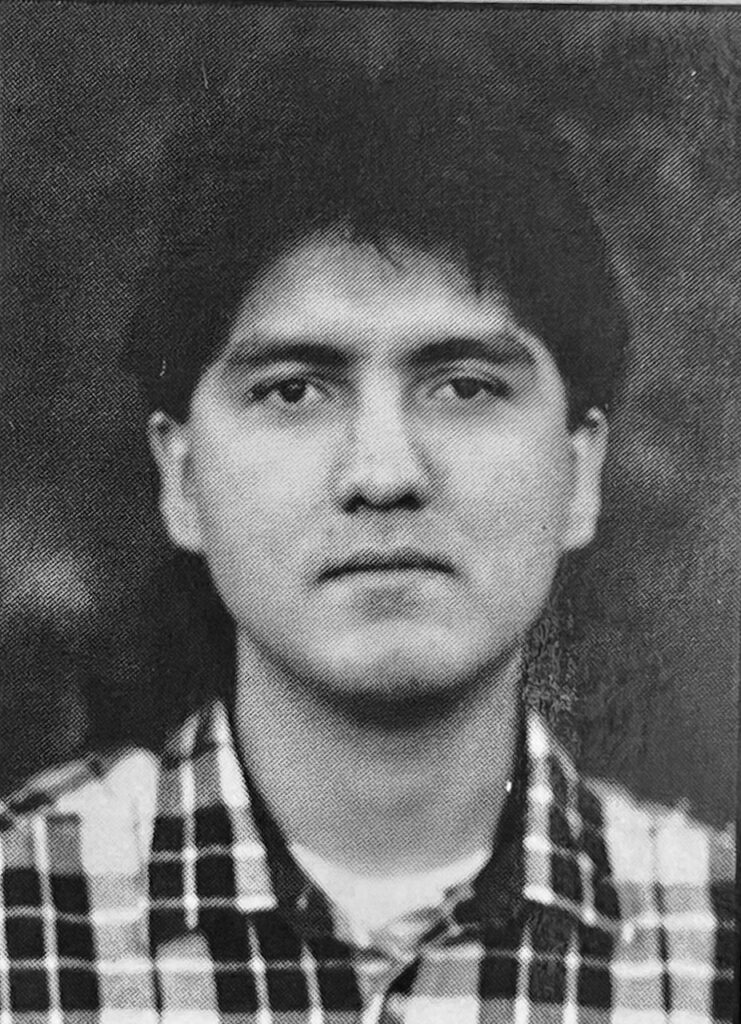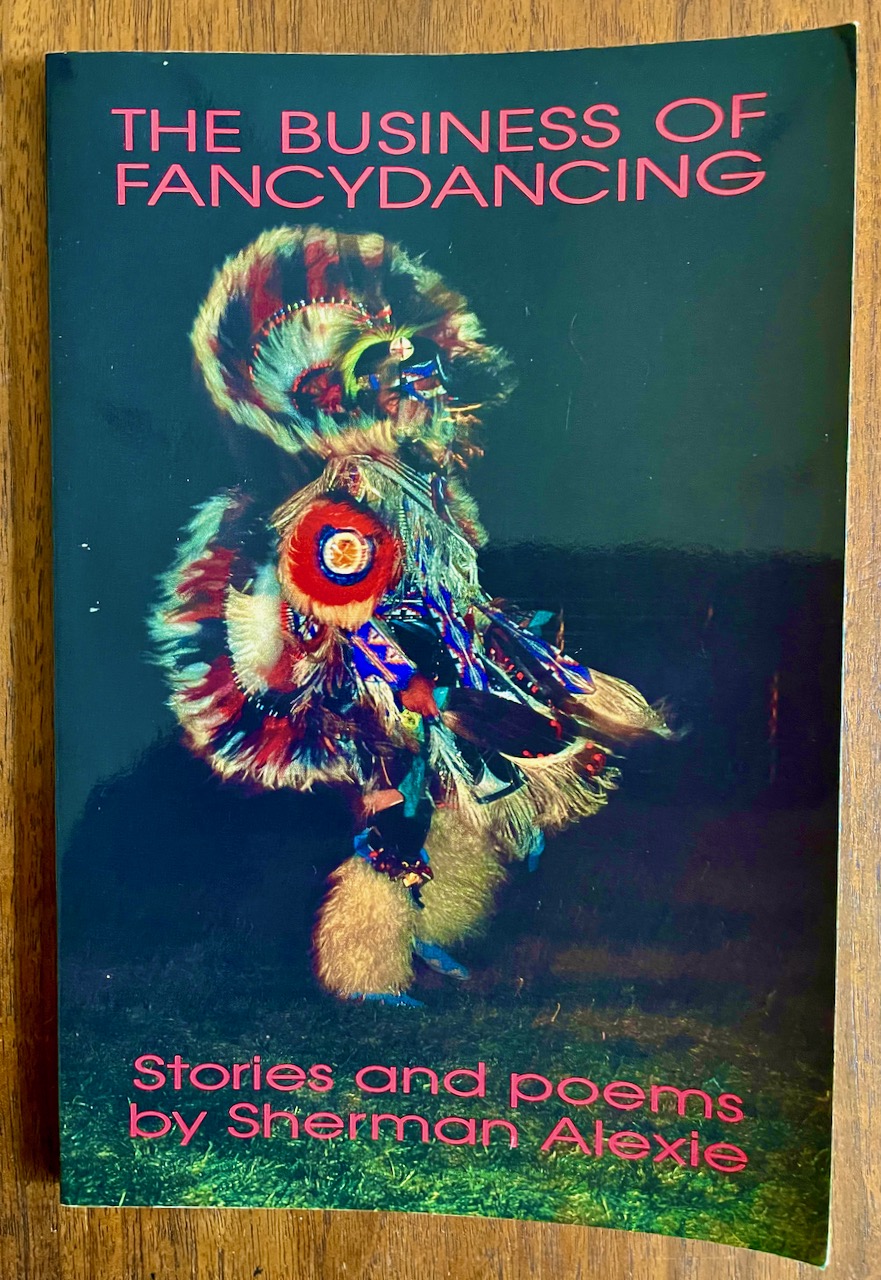When I was in the MFA program at Columbia University in the mid-1990s, a poetry professor assigned a book called The Business of Fancydancing (Hanging Loose Press, 1992) by a writer from my home state I’d never heard of: Sherman Alexie. When I turned the book over, the black-and-white on the back showed an enviably-young man in a checkered shirt beside a listing of journals he’d published in. Below was a quote from a front-page review in the New York Times that called the book “wide-ranging, dexterous and consistently capable of raising your neck hair.”
I don’t know that the book raised the hair anywhere on my body, but it did raise my consciousness and my sense of what poetry and short stories and writing of any kind can do and be. A Spokane/Coeur D’Alene Indian who seemed to love basketball as much as I did, Alexie not only knew how to explode expectations but how to challenge those who felt they had a right to impose them, and how to wrestle the language his people were forced to speak into forms and lines and juxtapositions that made it seem entirely new.
Here, for example, is a poem from that book called “Evolution”:
Buffalo Bill opens a pawn shop on the reservation right across the border from the liquor store and he stays open 24 hours a day, 7 days a week and the Indians come running in with jewelry television sets, a VCR, a full-length beaded buckskin outfit it took Inez Muse 12 years to finish. Buffalo Bill takes everything the Indians have to offer, keeps it all catalogued and filed in a storage room. The Indians pawn their hands, saving their thumbs for last, they pawn their skeletons, falling endlessly from the skin and when the last Indian has pawned everything but his heart, Buffalo Bill takes that for twenty bucks closes up the pawn shop, paints a new sign over the old calls his venture THE MUSEUM OF NATIVE AMERICAN CULTURES charges the Indians five bucks a head to enter.
Sherman Alexie was not the first Native American writer to break through the white wall, but over the next 25 years he was certainly one of the most successful. And he did more to shine a light on the real lives of Indians in the Pacific Northwest than anyone else.
One year after Fancydancing, which contains a mix of poems and short stories, Alexie published his first all-story collection, The Lone Ranger and Tonto Fistfight in Heaven (Atlantic Monthly Press, 1993). I didn’t need to see more than the title to know I’d love it and be challenged by it and feel uncomfortable reading it, all at once.

Since that time, Alexie has published close to 20 books, including Ten Little Indians (a collection of stories set in and around Seattle; Grove Press, 2003), the young adult novel The Absolutely True Diary of a Part-Time Indian (set in the NE part of Washington he grew up in; Little, Brown, 2007), and his latest, You Don’t Have to Say You Love Me (Hachette, 2017), one of the most compelling and heartbreaking memoirs I’ve ever read. He’s also written and co-produced films from his work, including the hugely popular Smoke Signals (1998).
Until he stopped doing tours a few years ago, his readings were must-see events, with Alexie not only giving distinctive voices to individual characters but acting out his stories to both hilarious and poignant effect.
Unfortunately, not long after his memoir came out, several women stepped forth to say he had sexually harassed them. Since that time, he has remained quiet and a number of institutions have renamed or recalled awards associated with him or ended promotion of his books.
The question now is how we recognize or appreciate or contextualize one of the most important Native American voices in Pacific Northwest history. If we read his books, are we condoning his behavior? If we don’t read his books, are we denying ourselves and those who come after us an important perspective on our region, culture, and collective history? Is there a statute of limitations?
I don’t have any answers. All I can say is that back near the end of the 20th century a voice spoke to me in a language and form I’d never heard or seen before, and I will always be grateful for how it opened me up. How it challenged me. And how it changed me for the better.

Leave a Reply